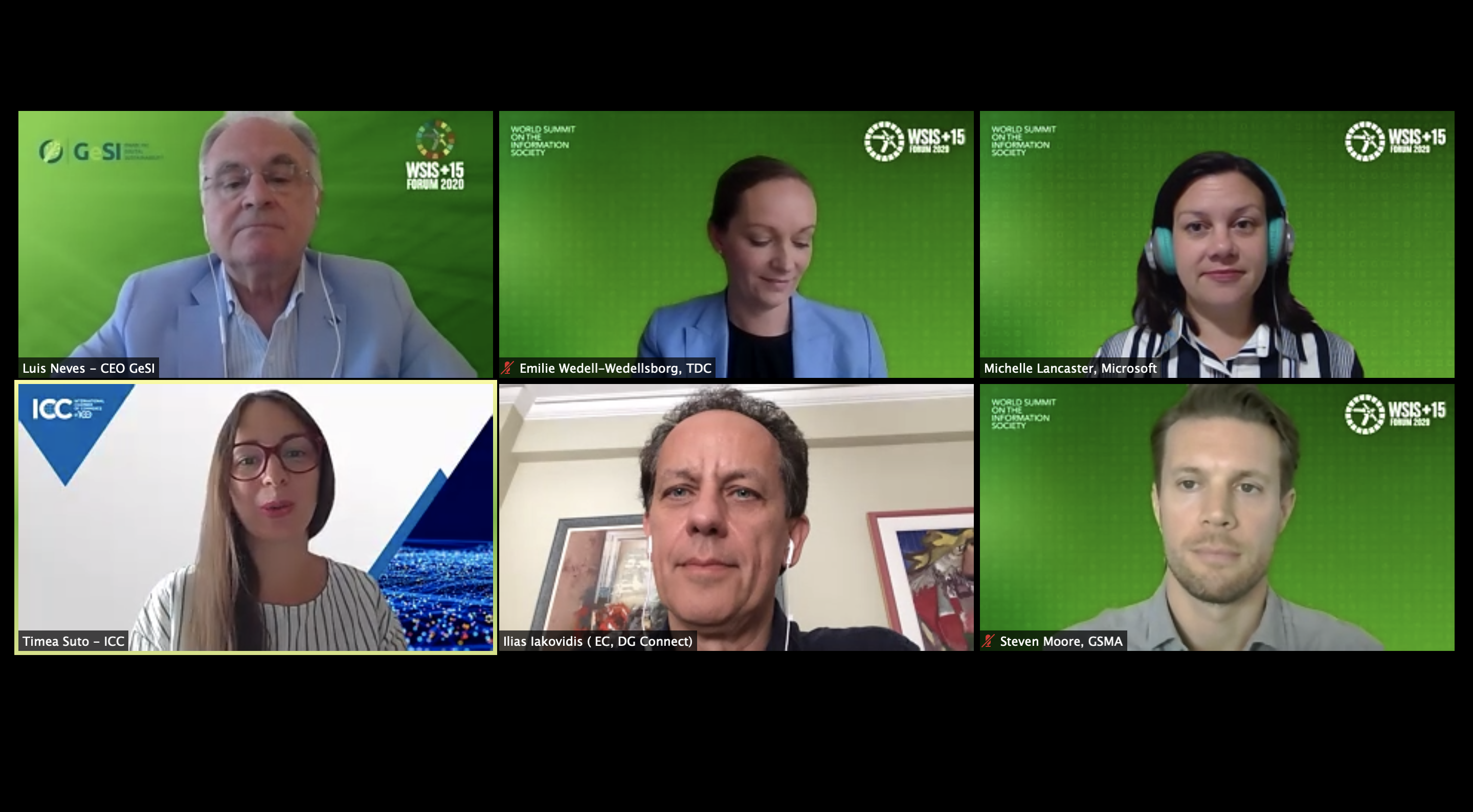Digital innovation to counter the impact of climate change
International Chamber of Commerce | Business Action to Support the Information Society
Session 293
Digital technologies are major catalysts for the 2030 Agenda for Sustainable Development and offer vastly powerful tools to help progress on all 17 Sustainable Development Goals (SDGs). The SDGs set a goal to protect the planet so it can support the needs of the present and future generations. Every day we are seeing just how connected – and fundamental – climate change is to global development. As the effects of climate change increase dramatically, digital technologies can contribute to a more sustainable future. They have a critical role to play in protecting the planet and reversing negative trends.
The private sector has been an important actor in developing and deploying infrastructure and technology solutions to help counter climate change and support green and sustainable development. The private sector is also a meaningful actor in building capacity and help mobilize all stakeholders to inspire climate action.
Sustainable private sector innovation and investment will continue to be an increasingly important factor in pursuing the goals of the Paris Agreement. Aligning public policies that promote rather than deter investment in infrastructure, and technologies to enable new applications and services is paramount.
This workshop will explore how businesses around the world use and develop technologies to measure, understand and fight the impacts of climate change and mobilize to keep the globe from warming above 1.5 °C. Panelist will showcase business solutions and commitments for climate action across all layers of the global digital ecosystem (from infrastructure to applications to capacity building). They will also elaborate on the elements necessary to create enabling policy environments in which such business-led and / or multistakeholder projects and initiative can flourish.
-
 C2. Information and communication infrastructure
C2. Information and communication infrastructure
-
 C3. Access to information and knowledge
C3. Access to information and knowledge
-
 C4. Capacity building
C4. Capacity building
-
 C6. Enabling environment
C6. Enabling environment
-
 C7. ICT applications: benefits in all aspects of life — E-environment
C7. ICT applications: benefits in all aspects of life — E-environment
-
 C11. International and regional cooperation
C11. International and regional cooperation
-
 Goal 3: Ensure healthy lives and promote well-being for all
Goal 3: Ensure healthy lives and promote well-being for all
-
 Goal 6: Ensure access to water and sanitation for all
Goal 6: Ensure access to water and sanitation for all
-
 Goal 7: Ensure access to affordable, reliable, sustainable and modern energy for all
Goal 7: Ensure access to affordable, reliable, sustainable and modern energy for all
-
 Goal 9: Build resilient infrastructure, promote sustainable industrialization and foster innovation
Goal 9: Build resilient infrastructure, promote sustainable industrialization and foster innovation
-
 Goal 11: Make cities inclusive, safe, resilient and sustainable
Goal 11: Make cities inclusive, safe, resilient and sustainable
-
 Goal 12: Ensure sustainable consumption and production patterns
Goal 12: Ensure sustainable consumption and production patterns
-
 Goal 13: Take urgent action to combat climate change and its impacts
Goal 13: Take urgent action to combat climate change and its impacts
-
 Goal 14: Conserve and sustainably use the oceans, seas and marine resources
Goal 14: Conserve and sustainably use the oceans, seas and marine resources
-
 Goal 15: Sustainably manage forests, combat desertification, halt and reverse land degradation, halt biodiversity loss
Goal 15: Sustainably manage forests, combat desertification, halt and reverse land degradation, halt biodiversity loss
-
 Goal 17: Revitalize the global partnership for sustainable development
Goal 17: Revitalize the global partnership for sustainable development

.png)
_.png)
_.png)
.png)
.png)
.png)

